World Student Christian Federation Europe Region
Ecumenical Journal, 2013/Special Issue
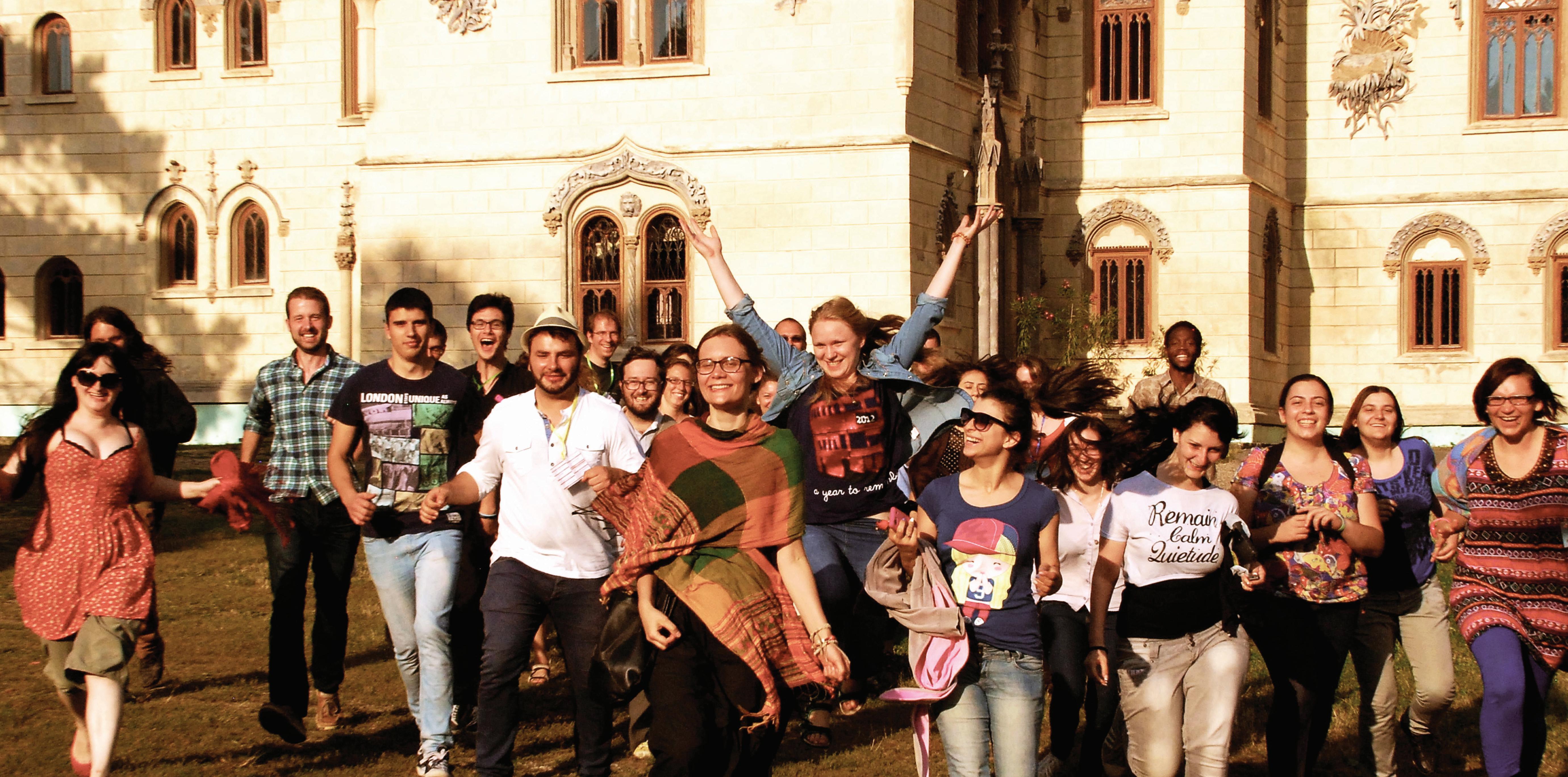

World Student Christian Federation Europe Region
Ecumenical Journal, 2013/Special Issue

Mozaik (established in 1992) is the ecumenical journal of the World Student Christian Federation (WSCF, 1895) Europe Region, published two to three times a year. It aims to reflect the wide variety of opinions and viewpoints present among the different Student Christian Movements (SCMs) in ecumenical dialogue. You can find us Online at wscf-europe.org.
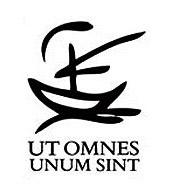
This project has been funded with support from the European Commission. This publication reflects the views only of the author, and the Commission cannot be held responsible for any use which may be made of the information contained therein.
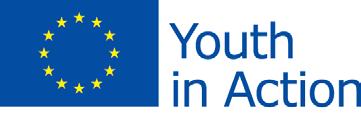
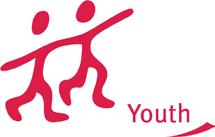
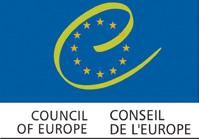
Editor-in-Chief:
Pawel Pustelnik (Cardiff, United Kingdom)
Editor:
Miro Pastorek (Púchov, Slovakia)
Proof reading:
David J. Cleary (Dublin, Ireland)
Art Editor:
Mária Bradovková (Vranov nad Topľou, Slovakia)
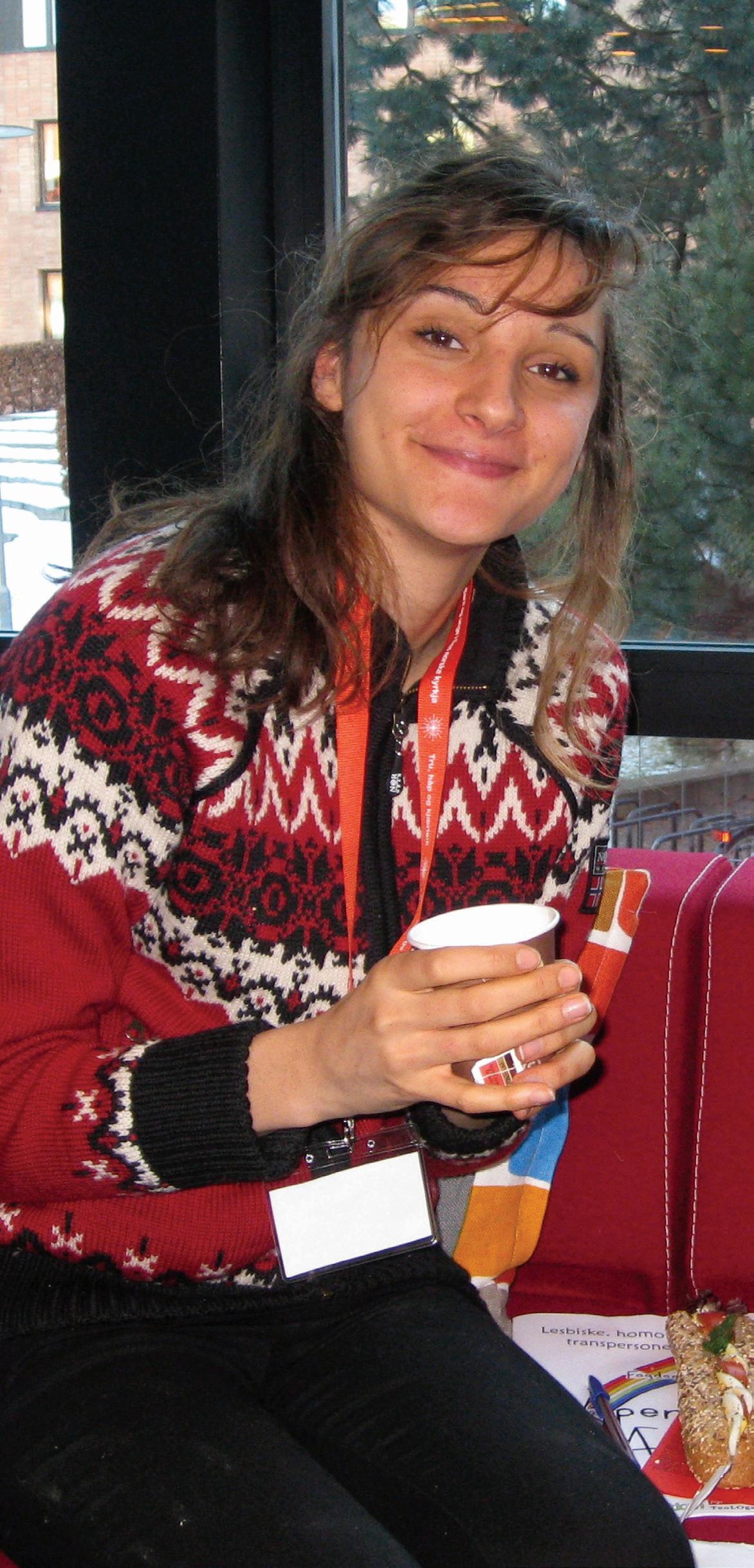
Address:
WSCF Europe
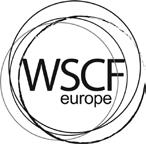
Storkower Straße 158 #710 D-10407
Berlin, Germany
ISSN 1019–7389
Make every effort to keep the unity of the Spirit through the bond of peace.
― Ephesians 4:3I also believe that it's almost impossible for people to change alone. We need to join with others who will push us in our thinking and challenge us to do things we didn't believe ourselves capable of.
― Frances Moore LappéWhat should young people do with their lives today? Many things, obviously. But the most daring thing is to create stable communities in which the terrible disease of loneliness can be cured.
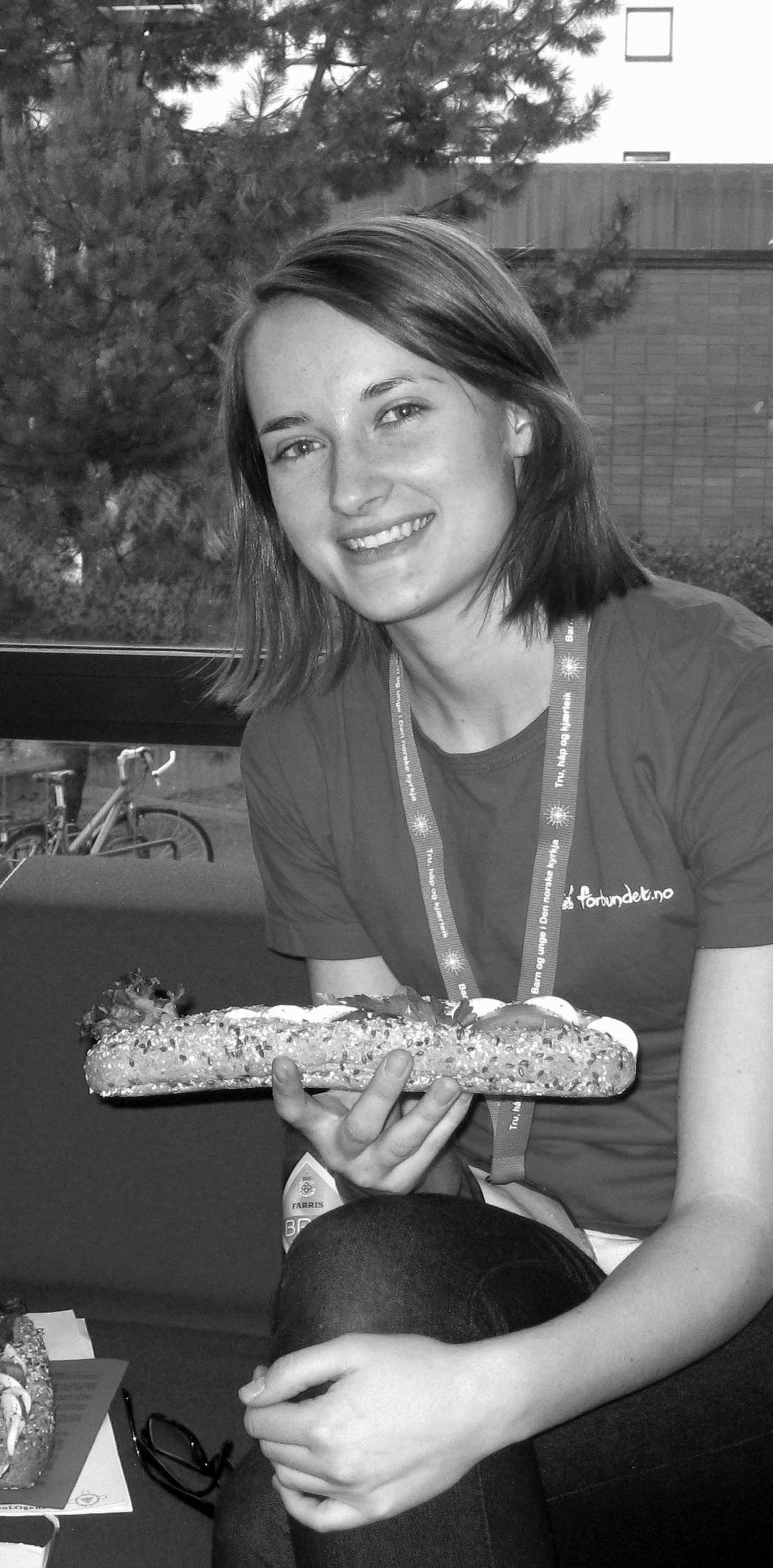 ― Kurt Vonnegut
― Kurt Vonnegut
It has been two years since we last met at the European Regional Assembly (ERA). Twenty-four months full of planned and unexpected events, successful discussions, attempts to make World Student Christian Federation (WSCF) better, closer to people and more dedicated to building wise, accepting and welcoming ecumenism. It has also been hours of discussions and hundreds of cups of tea and coffee (let’s hope it was all fair trade!) about the present and the future. Now we meet again and try to see the changes that happened to the Federation, Student Christian Movements and to us, the individuals who create the beauty and persistence of the organization built on mutual understanding, respect and safe space.
One of the purposes of the European Regional Assembly is to democratically choose the new European Regional Committee (ERC), a body that steers the work of WSCF-E. In the last two years Sofie, Vera, Marta, Zuzka, Libby, Kristin, Marco, Artturi and Shannon were enthusiastically volunteering on various positions in the ERC – I would like to take this opportunity to thank them for their involvement and passion for their work. I would like to wish the new ERC a lot of courage to take up challenges and power to be the voice of young European Christians.
It is my pleasure to provide you with this special issue of Mozaik, which showcases some of the WSCF-E activities in the recent two years, the experiences of people who work for the Federation and exciting news from other regions.
The WSCF Europe Office and its Staff
- Sofie Bonde Eriksen
What is this thing called World Student Christian Federation (WSCF)?
- Sofie Bonde Eriksen
Doubts on the Danube
- John Delap
Student Christian Movement in Norway –Norges kristelige studentforbund
– Gaute Braekken
Polish does not always mean Catholic
– Magdalena Nasuta in conversation with Pawel Pustelnik
The Young Christians for Peace and Democracy
– Mirian Gamrekelashvili
Short-term gain, long-term pain
– David Cleary
Not anger but pity – Ole Madsen
While the rich man enjoyed his wealth… Jackline Kayatta
4 | What´s on?
Native speakers in Romania
– Alex and Sarah Moore
Lingua Franca today and tommorow
– Lucian Cirlan in conversation with Pawel Pustelnik
My way to change the world
– Lina Leonavičiūtė
Report on WSCF Staff and Officers meeting, February 2013, Vienna, Austria
– Annelies van de Steeg
5 | WSCF in the world
Moving toward... Colombia!
– Shantha Ready Alonso
WSCF Middle East: Youth and Prayers – Elsy Wakil
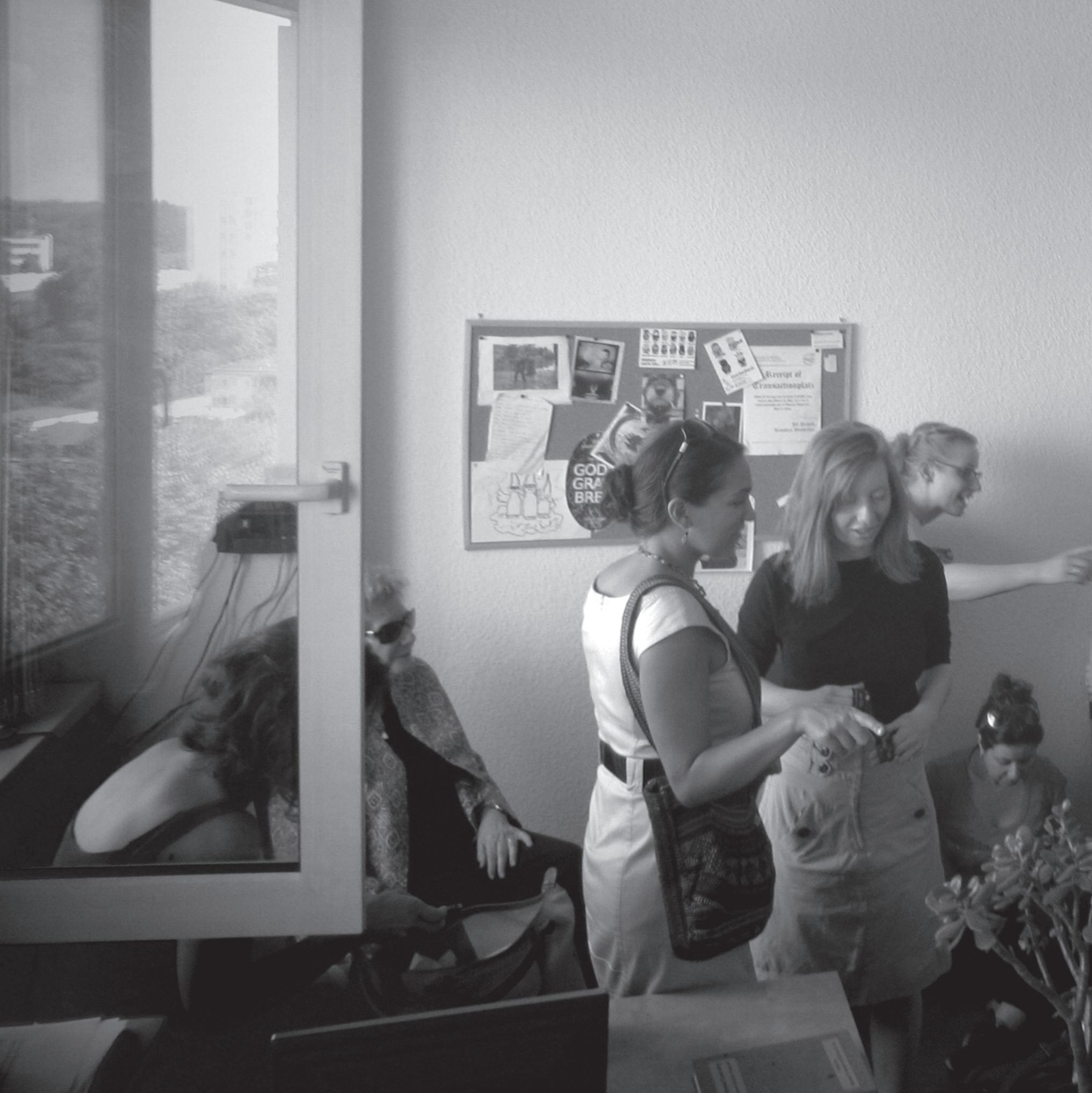
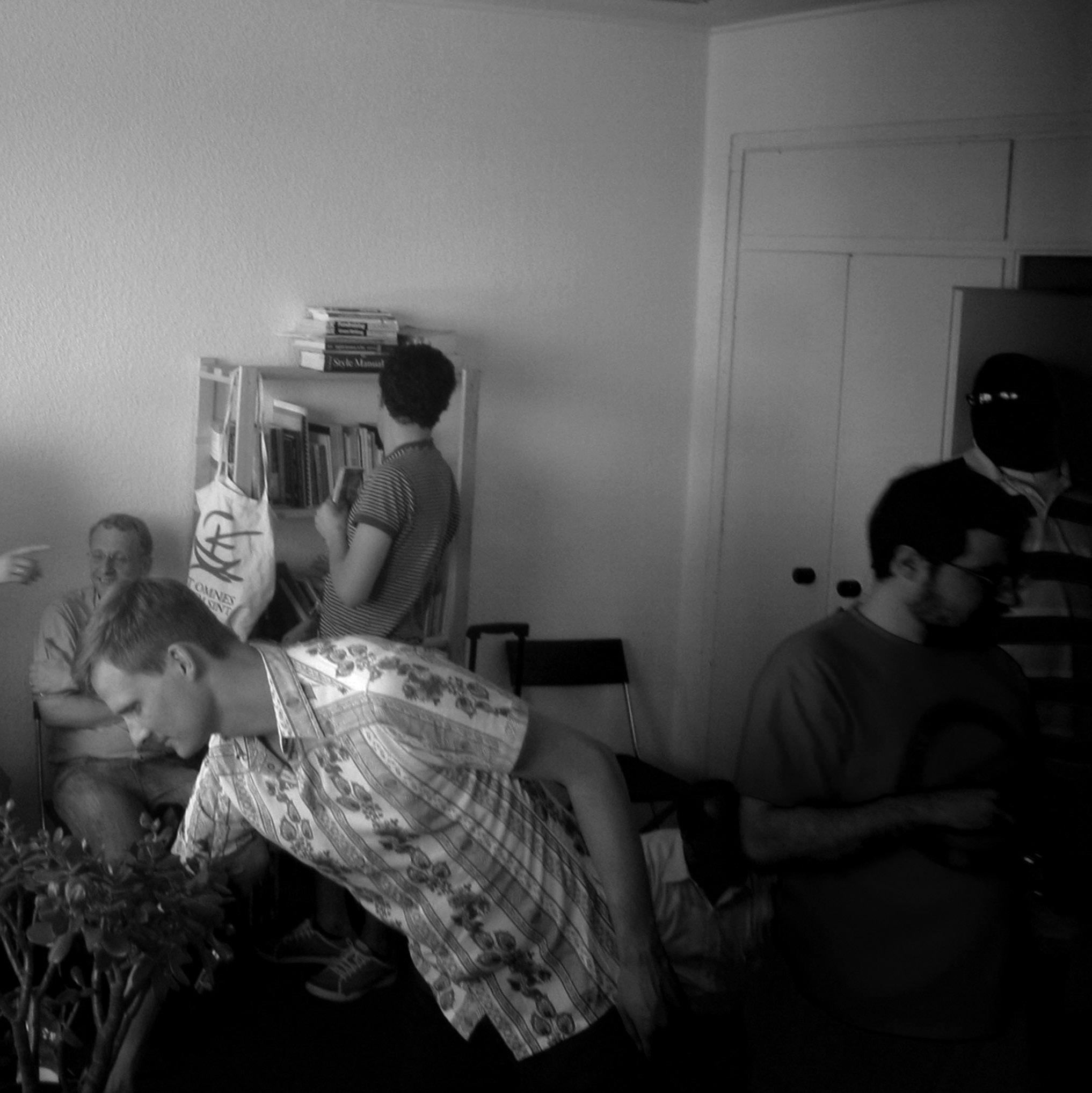
Landsberger Allee S-bahn Station is not a particularly interesting place. When you get off the S Bahn you can easily feel that you might be in the outskirts of Berlin, though the place is quite central and is situated in the area of Prenzlauer Berg. There are some hotels, a Generator Hostel, a number of office buildings and a couple of bars. On sunny days with blue sky it has its charm.
bakeries and turn left, walk one block and then you are at Storkower Straße 158 where WSCF Europe has had its office since late 2011. By now, it is almost two years since Katka Babicova and Jill Piebiak (the previous Secretary and Office Intern) took their epic trip with a large white van to transport WSCF from Hungary to Germany, completing the move of the office from Budapest to Berlin.
The building feels very clean and a bit empty. It has seven floors and can host what seems to be an indefinite number of offices. The rumbly elevator takes you up to the 7th floor and let you out exactly in front of the WSCF Europe Office in number 710. Compared to the rest of the building, it is less clean and much less empty: full of books and papers from past and present.
Two smiling faces will greet you and get up from their tables with teacups, computers and papers, excited to be interrupted and to welcome visitors. Even though emails, Skype meetings and fundraising applications can be breathtaking, real people are still more interesting. You can have an improvised coffee, a talk and you can enjoy

the view. Hans and Miro, the Regional Secretary and the Office and Publications Intern, are the office staff of WSCF and both work full time, mostly in this office but often travelling to meet SCMers at different events.
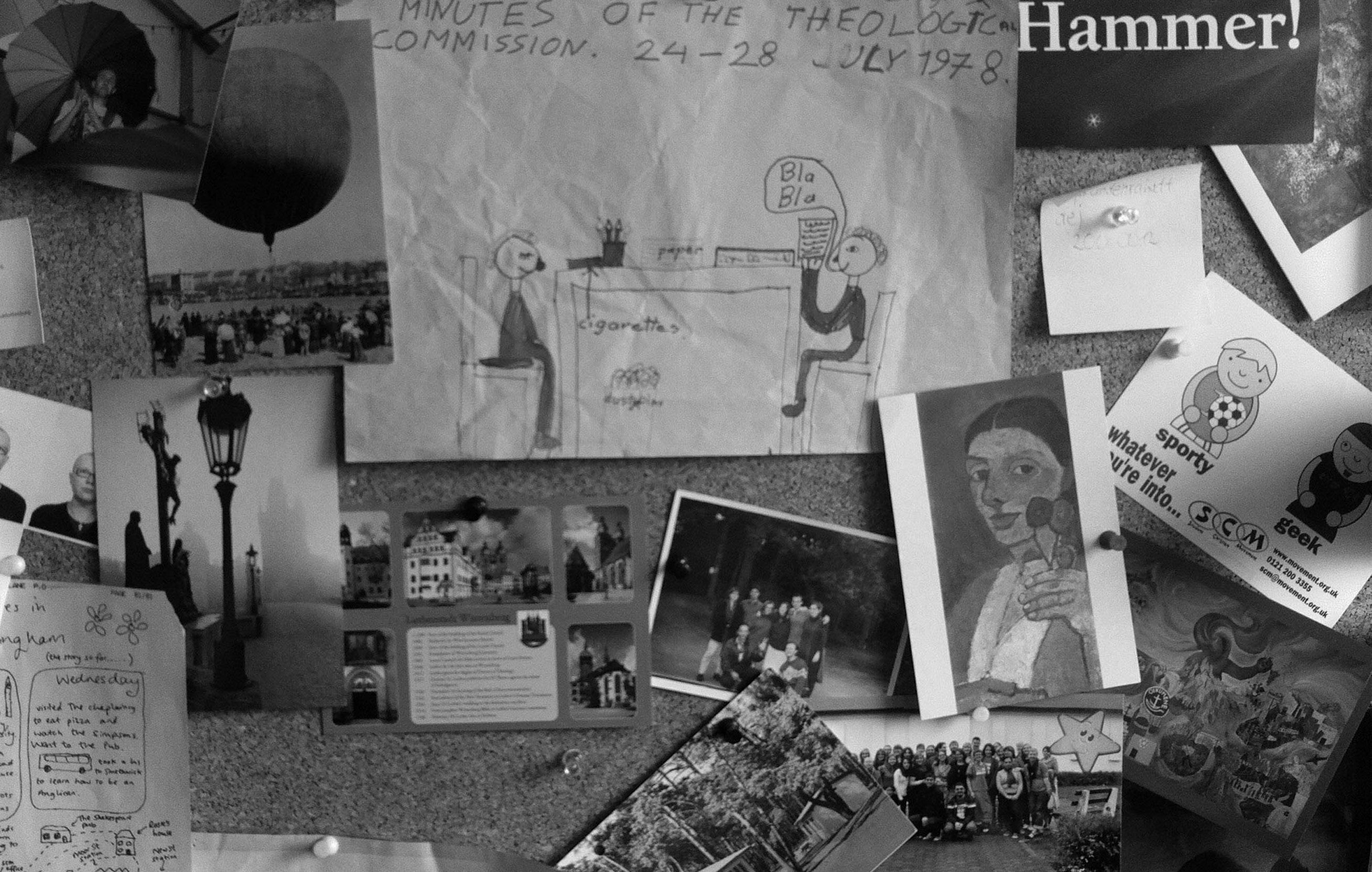
Miro manages the website and Facebook of WSCF Europe and works with the Editor in Chief on the publications. He is in regular contact with our member movements, promoting the WSCF events and helping with organising practicalities connected to them, like writing invitation letters and so on. And, of course, he supports Hans in the everyday tasks of the office.
Hans is responsible for the day to day work of managing the WSCF Europe, linking up with the ERC whenever important thematic or organisational questions come up. That entails working on fundraising and donor reports, providing practical input for the organisation of WSCF events, networking with SCMs and all the small and big tasks that come with running an office (and a legal organisation) in Germany. Approximately one day per week, he works with the global level of the Federation together with the Interregional Office in Geneva and the Regional Secretaries of the African, Latin
American, Middle Eastern and Asia and Pacific Regions. The office is full of little memories of the WSCF past: there is copy of the official letter sent to Société de Banque Suisse telling them that WSCF Europe does not wish to be clients there anymore as they, at the time (in 1982), supported the Apartheid Regime in South Africa. There is a Finnish cartoon from a former Regional Secretary giving good advice on how to write convincing fundraising applications. And there are loads of Christmas Cards from WSCF Friends and much, much more.
So you should come by! Seeing the faces of the people who are this Federation (You!), can be unbelievably supportive on days with endless fundraising applications,
German organisational law and heavy inboxes. Visits can be little breaks that remind us why we work to sustain and develop this federation: because of the valuable relationships that we build across all kinds of borders, from everyday concerns to cultural gaps.
And, when you come by, don’t forget to bring chocolate... �

When people ask me what the WSCF is, I get uncomfortable and stumble. I stutter something about dialogue among Christian denominations and its activism and about it being a “safe space”. While these words are coming out of my mouth my brain is working at high speed. I try to figure out what would convince the person in front of me that the WSCF is something unique that they must get to know. I try to figure out what he or she understands by the word, “Christian” and what experiences they have had with “church” to date. I try, in my few words, to express that I am normal and not particularly judgemental, that I don’t get personally offended if they do not believe in God or am bothered if they think that going to church is the most boring thing they could ever spend their time doing. I try to analyse their relationship with Christianity and, if it is broken, to attempt to fix it.

However, when they look confusedly at my stumbling and unconvincing responses, unaware that I am frantically analysing and trying to anticipate issues that might arise from what I am about to say, they become uncomfortable and, understandably, would rather we talk about something else.
And then I bite my tongue, because once again I did not succeed in conveying what I believe to be the absolute best and most important way to spend their time, with the WSCF Community.
I believe it is a failing that despite being the chairperson of WSCF-E I feel so inadequate when “selling” what we do. I trust and pray that other students are more successful in this than I am, and that I bring something else to the table.
One day I walked by a kiosk in Denmark and checked out the newspaper front pages. One said something like: “Thousands of Romanians are coming to take your jobs!”,“Danish Kasper has applied for 100’s jobs and is still unemployed” and “Romanian Alexandru says: I am not going anywhere!”. I found these front pages to be extremely provoking because of their cheap and unfair presentations of the actual situation. The purpose of headlines like this are to nurture the lowest common denominator in all of us by whispering in our ear that ‘there is but one enemy, one group of people to blame for all our nation’s troubles and the answer to this problem is easy!’ Over simplifying the argument sells more newspapers. What makes this ‘easy solution’ all the more tempting is that those apparently responsible for these national difficulties are anonymous and remote from us. “Thousands of Romanians” – who are they exactly?
The most valuable thing we can do together is to both silently and loudly oppose the kind of simple solutions these newspaper headlines offer and hope I would buy. The strongest force against the xenophobia that falsely
purports to be a friend in all kinds of crises, be they financial, social or political, is to keep questioning and not be satisfied with easy answers. Seek to make yourself familiar with the true facts underlying the story.
We can also meet as one in prayer and trust. Again and again I find that it magically happens whenever the WSCF community gathers at meetings and events; students take the risk of making themselves vulnerable and engage in prayer with others that they have often only just met. They commit to respectful dialogue on difficult topics and let their worldview and contexts be challenged. This is what I understand by “Living faith together for justice”. It is a commitment to reach out beyond yourself and seek God’s guidance in community with those who are strangers to you.
We sing: Gather us in and hold us forever, Gather us in and make us your own; Gather us in all people together, Fire of love in our flesh and our bone.
By this fire we should be led with a dedication to reach out to the stranger and meet the world humbly with trust and confront the hateful whispers with loud opposition. These two points are something to be learned over and over again. We need to be reminded whenever we loose our way to avoid choosing easy solutions to difficult problems.
For everything I have learned and experienced through the last four years I am deeply grateful. �
Sofie Bonde Eriksen has been serving on the European Regional Committee since 2009, the last two years as the chair. She is currently studying Theology in Denmark, where she lives with her husband, Martin. Sofie enjoyes slow mornings, travelling, coffee and unexpected guests.

Report of WSCF-E's Representative to the 14th Assembly of the Conference of European Churches
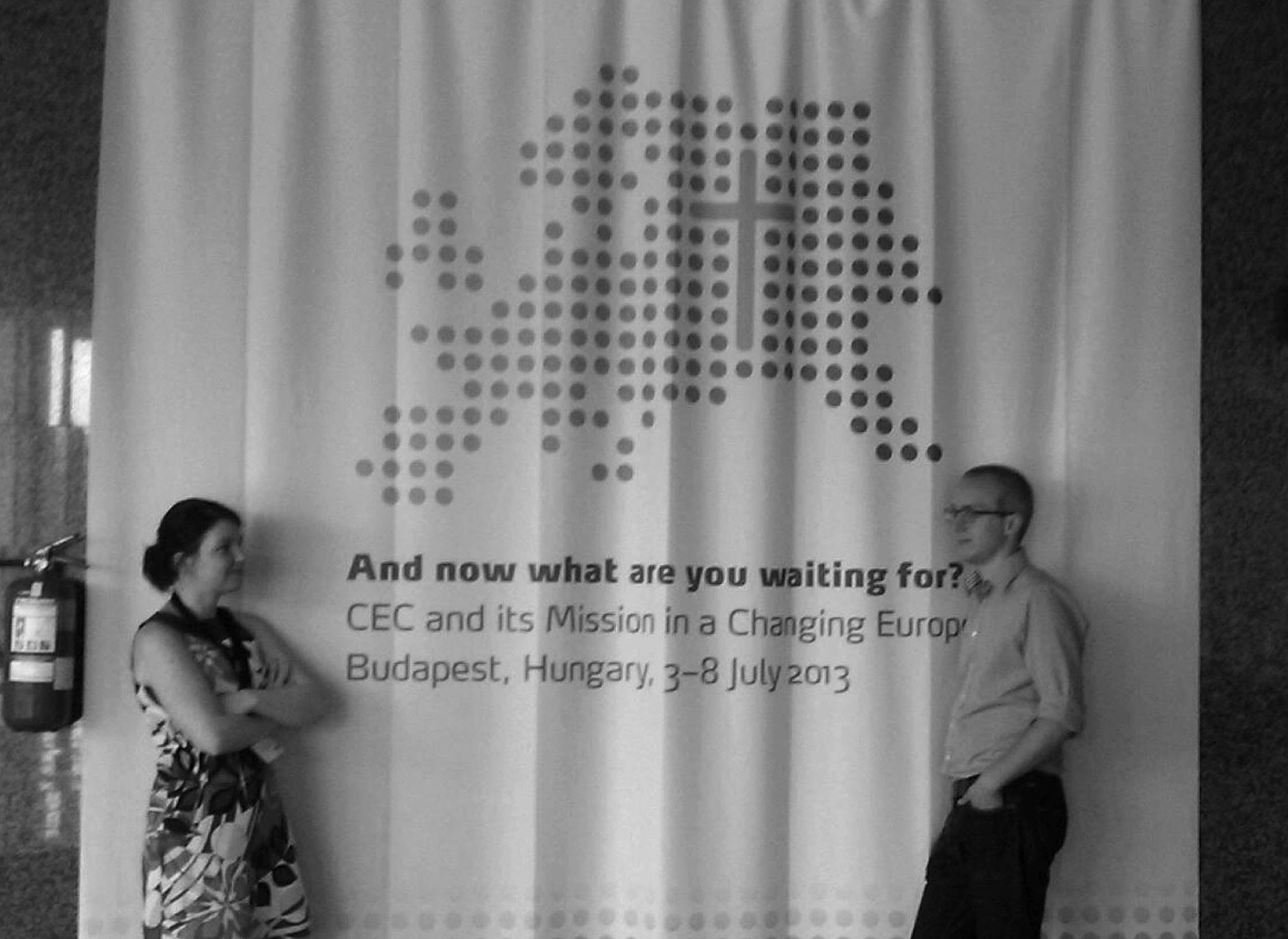
Dirk Schoon, Old Catholic Bishop of Haarlem and Amsterdam, sat on my left. I wished that he had taken the seat to my right—it would have been that bit less taxing on my lazy eye—but this was hardly the most pressing concern on my mind on the night of 6 July 2013.
The main function room of the RAM Coliseum in Budapest, Hungary, the temporary home of about 450 delegates, volunteers and staff hailing from dozens of churches in Europe, had been transformed from the Conference of European Churches (CEC) Assembly plenary hall, where we had sat together for four days gravely considering proposals to alter CEC's constitution, into a rather overthe-top ballroom. Live music played from the stage, white tablecloths covered round tables groaning under the weight of fine china and flower arrangements, women in evening gowns mixed with bearded and robed Orthodox priests. The celebratory atmosphere was a far cry from the contentious tone of the Assembly.
Bishop van Shoon nodded when I mentioned how pained I was by all of the luxury. The fancy hotels, the sumptuous meals, the overwhelmingly middle-class vibe of the gathering. These things were partly understandable. What was more disturbing, I continued, was the process used by the Assembly as it deliberated the future of the Conference. Democracy, in a Christian setting, is alien to me (the Roman Catholic that I am) and I yearned for the more universal consensus-model of decision-making. Still, the Bishop and I agreed that the daily prayer, daily breaking of bread and daily opportunities for human encounter provided by the Assembly were rare and profoundly valuable things.
Our conversation was interrupted by dimmed lights and the work of a (remarkably talented) artist designing, among other things, a replica of the CEC logo of a ship
setting sail out of sand. Shortly thereafter, we all set sail ourselves—on the Danube aboard a riverboat. We sang, danced, laughed and savoured the Christian fellowship. But where did this boat lead us?
We've come a long way as European Christians since the early days of Europe's “official” ecumenical organisation. The CEC was founded in 1959 as a forum for ecumenical fellowship among the Christian churches of Europe (the Roman Catholic Church is not a member). Since 1959, European churches have pooled their resources out of a commitment to seek fuller communion between our churches and between one another.
At that time, the founding churches agreed that the work of CEC should be guided, at the highest level, by an Assembly of European Churches, which would meet every six years to dialogue and deliberate an acceptable framework within which our shared resources could be expended. The Assembly would agree on broad policy and financial documents, which would then form guidelines for the day-to-day work of the Central Committee (elected by the Assembly) and the Staff.
At the most recent CEC Assembly in Lyon, France, in 2009, it became clear that in order for the CEC to continue to remain effective as an ecumenical body in Europe it needed to address where the CEC was based, who comprised its highest governing authority, and how it operated on a day-to-day level. As these issues touched on the most central elements of CEC's identity, a new constitution was required to give shape to how CEC might look in the future. Thus the delegates in Lyon elected members to form the Revision Working Group, which was tasked with proposing a new constitutional
text, along with a “road map” of guidelines for how CEC might function in the future.
The results of the Revision Working Group's findings were published in The Uppsala Report in advance of the Assembly in Budapest. As such, churches and churchrelated organisations (or Associated Organisations) had an opportunity to read the document and to table amendments to the constitutional text as proposed in The Uppsala Report.
The WSCF-E, together with the Ecumenical Youth Council in Europe (EYCE) noted that one of the suggested changes was the removal of Associated Organisations (the WSCF-E and the EYCE are both Associated Organisations) from future CEC Assemblies. Previously, Associated Organisations had all the rights that church delegates had, save for the right to vote.
The WSCF-E and the EYCE wrote a letter to CEC expressing our concern with this suggestion. Additionally, some church members tabled amendments to the proposed constitutional text calling for Associated Organisations to keep their status at future CEC Assemblies(alongside a multitude of other amendments on many other issues).
It was in this context, representing churches and Associated Organisations from nearly every country in Europe, that the delegates to the 14th Assembly of the Conference of European Churches (CEC) gathered in Budapest from 3 July – 8 July to consider the adoption of a new constitution.
Before each Assembly, CEC facilitates a Pre-Assembly for Young Delegates (voting delegates under the age of 30) and Stewards (the amazing team of young volunteers who more or less run the Assembly). The European ecumenical youth organisations are each asked to participate in the planning of the Pre-Assembly and, as such, in April 2013, I found myself working with a team of young people from the EYCE, the Young Men's Christian Association / Young Women's Christian Association (YMCA/YWCA), Syndesmos and several others. The PreAssembly provided a space to ensure that all the young people present at the Assembly had a good sense of the history of the CEC and the current issues which would need consideration by the Assembly.
It became clear early on that certain issues would be controversial. The young delegates discussed these issues with interest – but, slowly, a more overriding concern was emerging: how would our sisters and brothers dialogue about their differences on these issues? Would the 14th Assembly of the Conference of European Churches become a forum which modeled the values of gracious reception and humility? Or would the discussion become acrimonious? We hoped for the best.
The work began. The differential between the amount of work we had to do and the amount of time we had to complete it did not escape the Assembly Moderator, Archbishop Michael Jackson, nor, indeed, any of us in the plenary hall. Despite his best efforts at keeping us on track, we regularly ran over time. The work spilled over into coffee breaks and mealtimes, when much strategising and amendment-writing and lobbying would occur. At times, it felt like the acute lack of sleep was our most compelling common denominator.
The intensity of the politicking of the Assembly was matched by an intensity of fellowship and a deep reverence for times of prayer. The hard-working and immensely patient Assembly Worship Committee had taken great care to prepare brilliant Opening and Closing Services along with daily prayer three times each day. I often found myself with joyful tears in my eyes at the significance of this large, diverse group of Christians from many different places, speaking many different languages praying together as one. Perhaps the divisions so clearly apparent on the Plenary Floor made these moments of unity more poignant. I certainly found them so. The music chosen, a moving selection of Orthodox, Anglican

and Protestant hymns, added a richness to our prayers. Singing together the slow-burning, soothing Romanian Orthodox chant “Sfinte Dumnezeule,” which asks for God's mercy on us, was a particularly beautiful shared experience.
And God did have mercy on us. He gave us the concentration we needed to complete our business of adopting a new constitution before our time was up. This accomplishment was not, however, without some degree of pain. True ecumenical dialogue demands a bit of pain, in exchange for the life-giving joy that emerges from our strengthened unity.
I struggled myself, at times, to see where God's grace was emerging during the Assembly. The Associated Organisations, under the leadership of the politically astute and quick-thinking Felix Beck of the EYCE, had agreed a wording of an amendment which would ensure that Associated Organisations could retain their role at future CEC Assemblies, along with perhaps having the right to serve as non-voting members of the future Governing Boards. The wording of this amendment was put before the Assembly and, in a vote on the Assembly floor, it was passed. Several days later, during the third reading of the article pertaining to Associated Organisations, a delegate from the Union of Protestant Churches in Germany (EKD) requested a closed session. (A 'closed session' is a session of the Assembly where only voting members of the Assembly are present).1 As the representatives from the Associated Organisations had spent many days preparing to speak on the subject of our continued involvement in the CEC, we were quite disappointed that the Assembly voted, despite earnest and heartfelt remarks from Moderator Jackson about his concerns around excluding voices from the dialogue, to enter into a closed session to amend the text that the Assembly had already agreed.
In the end, though the wording our amendment--and thus our official standing at future CEC Assemblies-was watered down somewhat, the result still addressed the concerns the WSCF-E had expressed in its letter to the CEC. We still have a status as an “Organisation in Partnership” for which we are not expected to pay. We may still have a role at future CEC Assemblies, as the power to grant this status now lies with the Governing Board. Indeed, CEC also indicated that they will make an active effort to collaborate with the WSCF-E, and other organisations, addressing the concern, as articulated in

the letter, that the relationship had become a bit onesided in past years. So, in terms of outcomes, most of our worries were addressed. Still, I was left feeling troubled – not by the outcome, but by the process used to arrive at that outcome.
When the closed session ended and all the guests, volunteers, stewards, press, observers, staff people and Associated Organisations were permitted back inside the Plenary Hall, Moderator Jackson invited one of us to speak about how we felt about having been excluded from the dialogue. I volunteered to speak. I was nervous about getting my words right and made more so by the fact that I found my voice cracking as I spoke. Being willing to be publically vulnerable, I said, especially in the public eye, is a hallmark of the ecumenical movement. Of course we don't all agree, and that's fine – even something beautiful. As Christians, we are called to make an effort to build trust when we are uncertain. This requires something of
us. The Assembly of the Conference of European Churches should be a forum for modeling that kind of authentic trust-building, for leading the way on what it means to be publically vulnerable. That the 14th CEC Assembly did not serve as a role model for the whole ecumenical movement in these areas left me feeling a bit undone.
space that WSCF-E provides for young people in the ecumenical movement. They said that WSCF-E events taught them the importance of authenticity and trust. They encouraged us to continue prophesying and suggested that we be unafraid to ask them, and our own churches, for financial support when we need it.
And the staff and leadership of CEC does not want you to be afraid to approach them either. At the end of the Assembly, we elected a new Governing Board. The people elected to the Governing Board seem genuinely interested in hearing more from us. If you are interested in the work of CEC, please don't hesitate to contact them and suggest ways of collaborating.
Yet, God's grace emerges from all situations. After this emotional moment on the floor of the Assembly, I found myself with a renewed enthusiasm for articulating the will of the WSCF-E to serve the churches.
I spent time explaining to delegates that the WSCF-E's aim is to work with churches to provide opportunities for young people to travel, gain communication skills, meet Christians from other traditions, pray together, and learn how to trust one another, even when hailing from very different backgrounds. I told our brothers and sisters that the WSCF-E earnestly desires to equip young people with the skills they need to lead the future of the European ecumenical movement by providing experiences which help young people learn how to enter into a space of public vulnerability and to identify catalysts for transformation which emerge from such interactions.
Many adults who had formerly participated in WSCF-E events when they were younger approached me to say how much they valued the radical, authentic, nurturing
By providing a space where young people can learn the importance of authenticity and trust the WSCF-E serves as a lighthouse towards which the CEC can sail.
To learn more about the ecumenical work of CEC and see documents from the 14th CEC Assembly here: http:// assembly2013.ceceurope.org/ �
John Delap works supporting socio-economically disadvantaged students progress through university. He is also involved in the ecumenical youth movement in Ireland. He served as the WSCF-E Lingua Franca Coordinator in 2011. He lives in Dublin.

By providing a space where young people can learn the importance of authenticity and trust the WSCF-E serves as a lighthouse towards which the CEC can sail.
From him the whole body grows, fitted and held together through every supporting ligament. As each one does its part, the body grows in love.
― Ephesians 4:16 (NET)
A Christian community should do as Jesus did: propose and not impose. Its attraction must lie in the radiance cast by the love of brothers.
― Jean Vanier
20 Student Christian Movement in Norway –Norges kristelige studentforbund
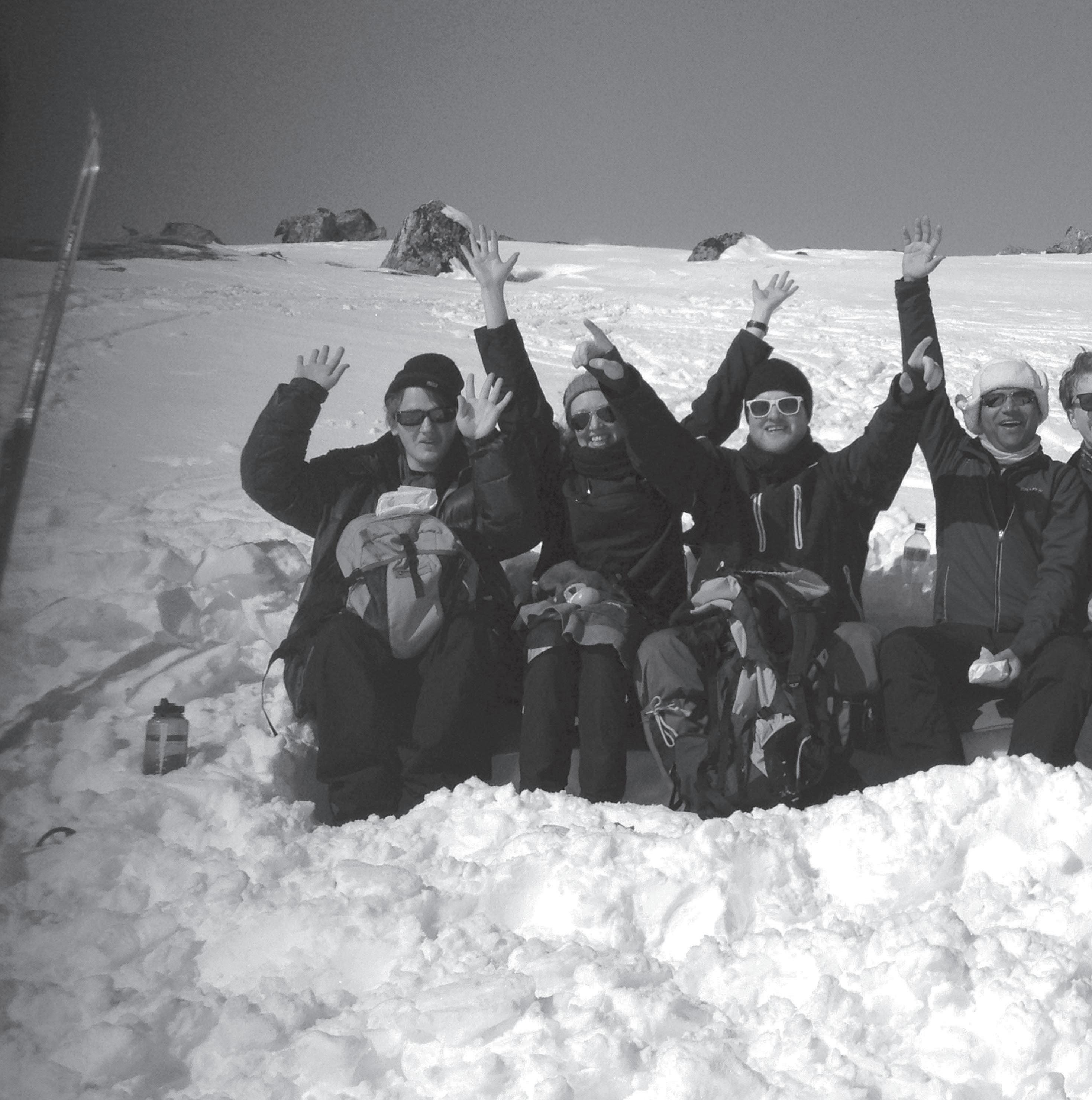
– Gaute Braekken
22
Polish does not always mean Catholic
– Magdalena Nasuta in conversation with Pawel Pustelnik
25
The Young Christians for Peace and Democracy
– Mirian Gamrekelashvili
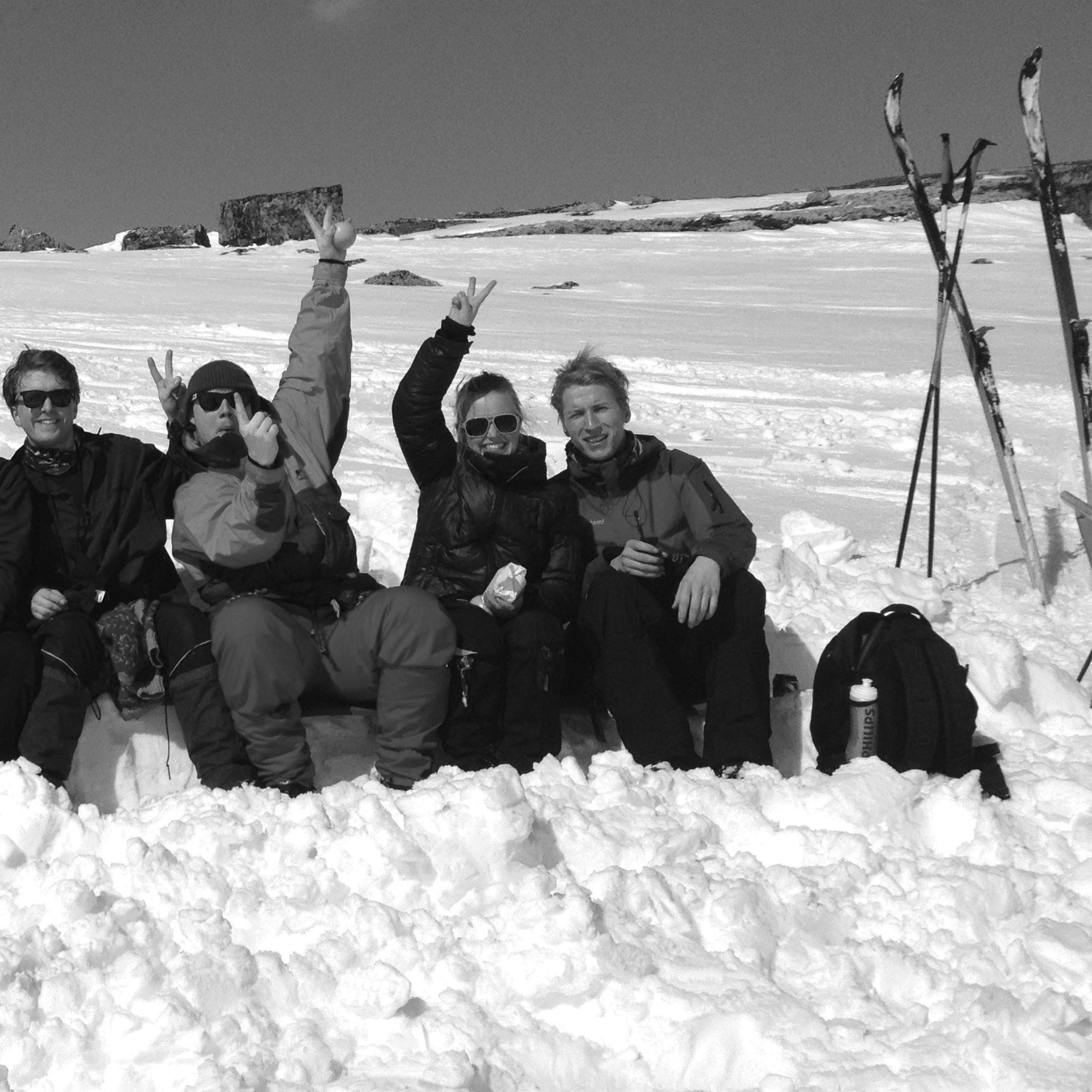

The SCM in Norway was one of the founding members of World Student Christian Federation, and it has been an independent Christian student organization from the very beginning. Our national board consists of student members only, aged 19 to 26. We also have a small staff at the head office in Oslo. We’re ecumenical, but most of our members are Lutherans.
SCM Norway has between 50 and 100 active members in total. We have local student groups at the three largest universities in Norway. The student groups mainly focus their work on discussions about theological and social issues, and they celebrate mass together. The groups have close connections with the university chaplains. We also invite students to take part in contextual Bible study groups, dinners for foreign exchange students, outdoor activities, film festivals and community outreach to poorer people in the city.
At national level, all student members are invited for two weekends every year, for fellowship, debates and setting priorities for the coming year. This year’s main national level programmes are solidarity with Palestine and working with women’s and LGBT people’s rights in the church.
As part of our exchange programme with SCM Palestine, we will have four visitors from Palestine attending our national weekend this autumn. Later on, we will send four Norwegian students to Palestine to learn more about the Israeli occupation. We also work closely with other Norwegian organizations to support Palestine, and we engage in solidarity fundraising. In addition, we will be celebrating the World Week for Peace in Palestine-Israel together with YMCA and YWCA in Norway.
We have campaigns to inform church members and church staff about LGBT rights in cooperation with the Queer Youth of Norway. We are planning for massive church participation in the EuroPride taking place in Oslo next year.
For the year ahead we will be focusing on capacity building for our movement, strengthening the local groups and attracting new members. Leadership training will form part of the programme.
Finally, we publish a student magazine, called Akt, three to four times a year. It is distributed to student members and Senior Friends and is also available online and in campus libraries. In the latest edition, one of our newest members, Anne-Marie, says this about the SCM in Norway: “The positive attitude I was met with right from the start, gave me an opportunity to relax and be myself. No one judged me no matter what. I really appreciated that. I hope to learn much from these people and to widen my horizons. They say that Christians are narrow-minded. I experienced just the opposite in SCM Norway.” �
Gaute Brækken is the Secretary General of the Student Christian Movement in Norway since August 2010. He belongs to the Church of Norway (Lutheran) and is politically active in the Norwegian Christian Democratic Party. He is a former head of the Programmes Department within the YWCA-YMCA Guides and Scouts of Norway.

We met with Magdalena Nasuta, a law student from Białystok and a member of the Polish Student Christian Movement – The Fellowship of Orthodox Youth in Poland at Lingua Franca Summer Camp in Miclăușeni, Romania. Magdalena talked about being an Orthodox person in Poland and the sense of community that being in a minority gives you.
Pawel Pustelnik: There are not too many Christian Orthodox people in Poland?
Magdalena Nasuta: Indeed, we are not too many. As far as I know we are around 500 000 people. In Poland where I was born and live there are 95% of Roman Catholics, so we are in minority. However, most of the Christian Orthodox live in Podlasie (Podlachia, a region in the eastern part of Poland), where I come from so it’s not uncommon to meet Orthodox people there. If you go to Gdansk or Poznan people might react “Wow, you are Orthodox, I cannot believe it!”. Also abroad, sometimes it’s confusing for people who make a simple equation: Polish means Catholic. In Greece for example, people believed that I was Orthodox only when they saw an Orthodox cross I was wearing.
PP: Are these reactions similar in Poland?
MN: Well, we are not seen as ETs but it is definitely not a common thing. For me, when I see Muslim people in Poland it is quite surprising. When I am outside of my area people usually ask a lot of questions: do you
believe in the Blessed Virgin? How do you call the church building? People do not know even the basic things about the Orthodox Church.
PP: It must be quite demanding to be constantly questioned. How do young Orthodox people in Poland cope with that?
MN: I would say that the young Orthodox people are closely bound to each other. When you meet an Orthodox person from another city or region you feel a special bond. I guess it is a result of the fact that we are a minority in Poland and we are very attached to our tradition and our religion.
PP: Do you think you are more attached than Roman Catholics or Lutherans?
MN: I think that it is mostly due to a relatively small number of Orthodox people. Our situation is far from the Catholic reality, in which you meet people and it is quite obvious that they are Catholic too. I think it is mostly about encountering the other, a person of a different denomination than the prevailing one.
PP: I imagine that the fact that you are not too many, your Student Christian Movement, Bractwo Młodzieży Prawosławnej w Polsce (The Fellowship of Orthodox Youth in Poland) must work energetically.
MN: Yes! We are all over Poland, we have six centres
according to dioceses. The one in Białystok where I belong is probably the most vivid as there is the largest Orthodox population in Poland and also the board of the whole organization is in Białystok, in the heart of the Orthodox Church in Poland. It would be much more complicated to make people come to Warsaw for example.
PP: So what is going on in the young heart of the Orthodox Church in Białystok?

MN: The Fellowship started working at the parochial level and people were meeting there once a week, usually with a an Orthodox minister and discuss various issues. We organize camps both in Poland and abroad. One of the most popular meeting is the camp at Góra Grabarka – once a year in August we meet there for two weeks and we help the nuns. These are very simple but needed things: we paint walls, do some gardening…
PP: And what do you talk about during your weekly meetings?
MN: About everything, really. It depends also on what our guests suggests and what the youth wants to know.
It can be about ecumenism, how to pray, how to deal with certain sins, what we feel, etc.
PP: A religious know-how?
MN: Yes, we often share our experiences or ask about the problems we are struggling with.
PP: Do you argue?
MN: Not really. Of course, each of us has view on various issues, but we rather agree. There are not any sharp divisions. I think it depends also on the guest. If there was
Well, we are not seen as ETs but it is definitely not a common thing to be Orthodox.
a person who would present very controversial views, I imagine it would look much different.
PP: Do you think that this unanimity of views is good?
MN: Yes, definitely. This makes us closer to each other. We do not argue. We think in the same way, we have the same views on the issues.
PP: You mention that you talk about ecumenism. Your area is very interesting with regards to the religious and denominational composition. How does your ecumenical cooperation look like?
MN: Białystok is a place where the Orthodox Church meets with the Roman Catholic Church. The ecumenism is a very tangible and practical thing for us. Let’s say there is a Polish national holiday. We pray both in Orthodox and Catholic churches. Then, we have an Orthodox scout group established by my friend Marta Całpińska and as far as I know they attend camps together with Catholic scouts.
PP: How about the university life?
MN: I am not aware of any Orthodox initiatives at the university level. You know, at the university, people who study have firm outlook on life and they rather focus on more scholarly work. I study law, so religion is a very sensitive topic, we do not talk much about it. There are a lot of atheists so basically it is better not to talk about religion.
PP: Białystok is an important academic center, I imagine there are international students coming as well. Do they interact with the Orthodox spirituality? What is their encounter with the Orthodox Church?
MN: There are a lot of students coming from Spain. They are very interested in understanding the Orthodox
Church, they often come to visit churches, ask about our beliefs, about the liturgy. It is something new for them.
PP: Your Fellowship is associated with WSCF Europe. How does it translate to your activities?
MN: On our website there is a place where advertisements about WSCF events are and each of us can apply. One person in our board is responsible for the Fellowship’s international work and they encourage us to participate. It is very democratic – anyone can go. Unfortunately not too many people actually apply. Some time ago there was literally no interest – people did not know that there were such opportunities. Also, people were mostly focused on their local activities. Perhaps people were also a bit afraid of how people will react to what we think. Now cooperation with WSCF it is becoming more advertised and promoted. I am sure that in the future our participation will develop.
PP: Many SCMs in Europe are active on a local and regional level, is it a case for the Fellowship as well?
MN: I think that the camps at Góra Grabarka are the largest challenges each year. Last year there were around 120-150 volunteers who came. People are ready to offer their time and participate. In May we meet for three days and talk with clergy, participate in liturgy – it is more of community building.
PP: What are your plans for the future?
MN: We are definitely going to continue organizing the camps for youth. The May meeting that I mentioned has lost a bit of it impetus, we will do our best to make it wellattended. We also face a situation that people leave the Fellowship, so we will try to keep those who are with us and attract more people. Obviously, we are striving to make the international cooperation an important part of our work. �
Polish does not always mean Catholics

The Young Christians for Peace and Democracy (YCPD) association began in 2002 when the students of the Tbilisi Theological Seminary and young leaders from different religious communities formed an association to study and research various theological issues. At the same time, the association, supported by some members of the clergy, carried out various social projects. Despite containing ‘Christian’ in its title, the YCPD is not closed to non-Christians and any person sharing the Association’s declared aims can become a member.

The objectives of the Association are as follows:
• To protect religious rights and freedoms in Georgia
• To support peaceful relations among various religions
• To take an active part in inter-religious dialogue and facilitate the sharing of experiences among Georgian
and international Christian youth
• To actively seek greater involvement of Georgian youth in religious life and demonstrate the role of religion in the modern world
Alongside the above objectives, the YCPD also aims to inform western society about the current religious situation and the religious traditions of Georgia.
At the end of 2011 our SCM became an associated member of WSCF Europe and from that time on our activities have been reinvigorated with new inspiration and enthusiasm. The YCPD made significant efforts to achieve associated membership over many years and regarded it as one of the Association’s most important goals.
There were several challenges and successes in the life of our SCM during 2012.

We participated in the conferences and events planned by WSCF-E and our partner organizations. One of the key priorities of the YCPD is to support young people in furthering their theological studies abroad. The Association helps students to identify good universities in Europe and to provide them with help with their applications. A good example of this was when we helped to one member of our Association to obtain a scholarship to study at The Pontifical University of Saint Thomas Aquinas in Rome.
One of the most significant events of this year was the establishment of the Georgian theological journal Iota, for which we received some financial support from the Philanthropic Fund of Cyril and Methodius. The idea to publish Iota was prompted by the absence of any academic theological journal in Georgia. For the first time, young Georgian theologians will have an opportunity to write for such a journal and will be accessible to the wider public as well. Theological articles, essays from members of our organization as well as other young authors will be published in our journal. Establishing
Iota lays the foundation for the creation of a circle of young, intellectual theologians in Georgia. They will work together to help overcome religious and ethnic stereotypes and strengthen peaceful cooperation with people from different backgrounds. For the design of the journal, we selected ornamental features from ancient Georgian architectural monuments, and in doing so we gave our old heritage a new lease of life.
And we hope that it will continue to bring new life for many years to come!
Of course, anyone from WSCF willing to publish an article in our magazine is very welcome to do so! �
“An important stage of my personal formation coincided with the time I spent with YCPD and now I can say that volunteering at the organization, to a large extent, defined my world vision, attitudes and values. And I am happy that through our determined work and inspiration today we are already a part of a great community with the WSCF”.
– Yulia Bajelidze“YCPD opened a new door in my life, behind which was found love, tolerance, friends, understanding and respect... This organization gave me the chance to think and act differently. YCPD gave me the opportunity to meet new people from different ways of life and from new cultures and this was a great experience for me!”
– Ia Pozidou“I had a uniquely great experience in SCM-YCPD this year. I was able to co-operate with the representatives from all regions of WSCF. I found the exceptional ecumenical approach especially significant and I believe it is extremely important for us here in Georgia. Once again I discovered that it is only with the sharing of our love with everyone around us, irregardless of their social, ethnic or religious background, that we will find the key to truth and become real human beings.”
– Ketevan Zazanashvili – Mirian Gamrekelashvili
Mirian Gamrekelashvili graduated from theology at the Tbilisi Theology Seminary and from Sociology at Ilia State University. In 2006, Mirian together with his friends established a non-governmental organization “Young Christians for Peace and Democracy”. Since 2008, he resides in Germany, where at the Catholic University Eichstätt-Ingolstadt is pursuing his PhD research on the topic “Cultural Memory and Present-day Identity of Orthodox Church of Georgia”. You can read his blog at: http://theologymg.wordpress.com/
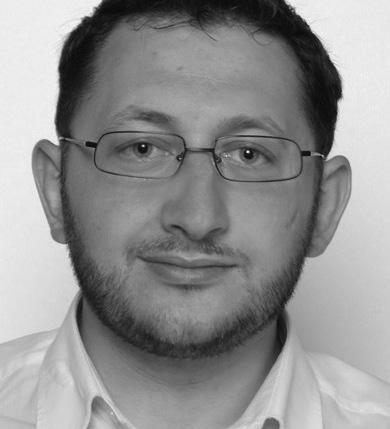
YCPD for me is an obvious example of what people, unified around one common goal, value and principle can achieve. This is an organization which reaches its intended aims only through its own possibilities”MIRIAN GAMREKELASHVILI la Pozidou.